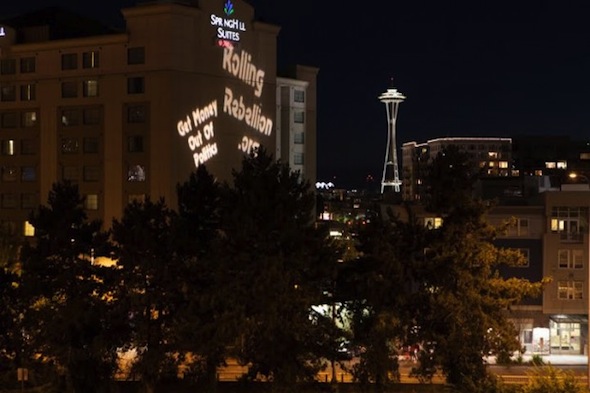Crowdsourcing Our Way Out of the Democracy Crisis
An increasing number of Americans are getting fed up with the phony democracy that exists in the United States. Across the nation people are engaging in democracy rebellions as they re-examine the nation’s roots, especially with the 4th of July weekend recently passing. 1
2
3
1
2
3
Activists in Spain have gone through a process of holding thirty workshops over a year to develop a “Charter for Democracy.” The Indignado Movement, their version of Occupy, was really a “Movimiento por la Democracia” (Movement for Democracy) where the seeds for this process were planted. Their movement, like ours, occurred because of a non-responsive two-party system, politics that was a disguise for domination by big business and the wealthy, resulting in austerity, high unemployment and increases in poverty, homelessness and economic suffering. They want their Charter to be the beginning of a discussion, a living document that evolves with more input.
They do not believe that working within the current framework will bring positive results. They seek a constitution that is “founded on participation, citizen control and equal rights:”
“Faced with this institutional stonewalling and the growing separation between the rulers and the ruled, it seems there’s only one way out: a deep expansion of democracy based on citizen control over political and economic power. Surely, since what’s left of democracy is constantly shrinking and attempts at internal reform would only mean repeating the same mistakes, we must take a chance on changing the rules of the game – a democratic change, geared toward returning to society the effective decision-making ability overall which concerns it.”
Just as the Bill of Rights in the US Constitution came from the experience of that era, where colonists experienced abusive searches, unfair trials, lack of due process and the monarchy curtailing their freedoms of speech and assembly, a constitution written today would reflect the challenges of our era. The Spanish put forward basic principles which “inspire a new, robust Bill of Rights” which include universality and diversity, equality, guaranteed democratic infrastructure and financial sufficiency. They conclude,
“Finally, it is understood that a subject of rights is also a subject of responsibilities, insofar as she or he is part of a community built around a common project. These responsibilities extend to the environment we inhabit, and include accepting the responsibility to care for it, protect it and enable its reproduction, and in doing so, our own. Such responsibility involves all citizens, but is distributed according to the differences of wealth and ability.”
Another document that came from the Spanish Democracy Movement is “Last Call: A Manifesto for Social Transformation” signed by more than 250 academicians, activists (including both of us) and others declaring the urgent need to create sustainable and just systems. It is available in English and you are invited to sign on if you agree.
The Spanish Declaration and the Cosmopolis Constitution are recent examples from around the world. But, there are a lot of experiences we can learn from. Iceland actually went through a process of crowdsourcing a new constitution using social media and town hall events. The people created a very progressive constitution which has so far been blocked by the legislature.
We have often thought about what a constitutional convention – of the people – would look like in the United States. Going through the process designed by the Constitution would unfortunately result in a convention made up of the wealthy as they would be chosen through an electoral process that is dominated by money. Thus, the result would not be a constitution of the people, but another one created by the oligarchs.
Instead, we’d like to see a process that came from the grassroots – an online process using wiki technology and social media to create a framework for a new constitution, followed by assemblies or town halls held across the country that put details on that framework, then a return to a wiki process to meld these ideas together into a final document. What would a new people-powered constitution created by the American public look like? Looking at polls of the public, we think we’d like the result.
All photos courtesy of Rolling Rebellion for Real Democracy
We are constantly covering movements all over the US and world, follow us on twitter @PopResistance for up-to-date news and sign up for our daily news summary here. This article is produced by Popular Resistance in conjunction with AlterNet. It is a weekly review of the activities of the resistance movement.Independent journalism is under threat and overshadowed by heavily funded mainstream media.
You can help level the playing field. Become a member.
Your tax-deductible contribution keeps us digging beneath the headlines to give you thought-provoking, investigative reporting and analysis that unearths what's really happening- without compromise.
Give today to support our courageous, independent journalists.






You need to be a supporter to comment.
There are currently no responses to this article.
Be the first to respond.